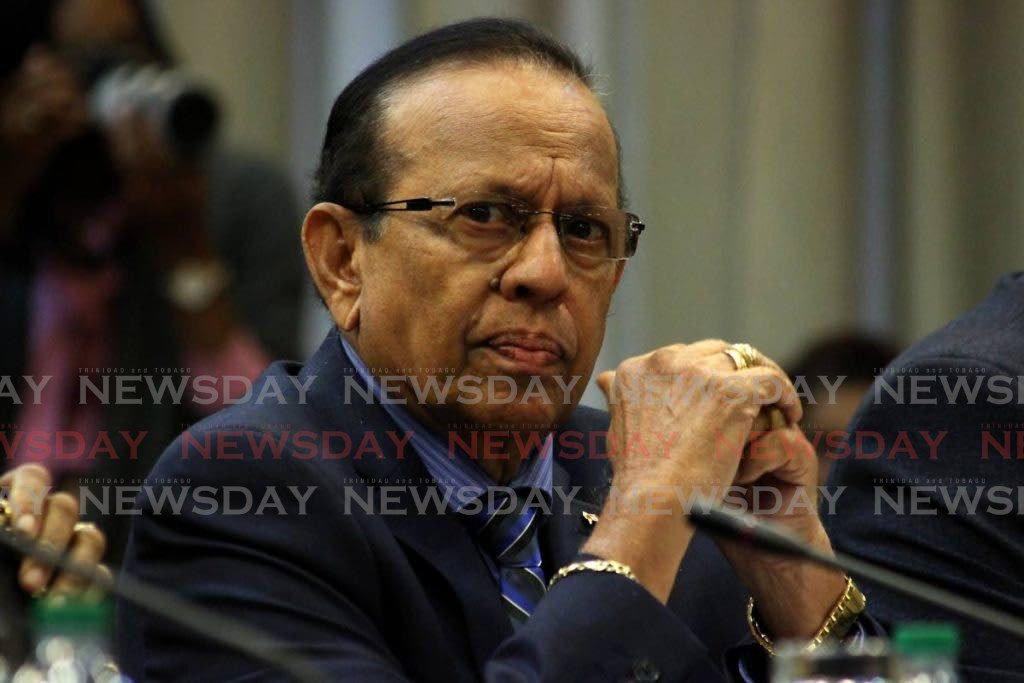Review PSC selection process, PM veto

PROF EMERITUS RAMESH DEOSARAN
THE METHOD of selecting a commissioner and deputy commissioner of police is in urgent need of review given what precisely is properly required for such public safety positions.
To start, the present CoP was placed fourth by the PSC in its 2018 list to the President and Parliament. And this was after a rather lengthy, expensive process by both the PSC and a hired firm. However, the government in 2018 selected him over three others as CoP. The fact is that the PSC and its hired firm have limited powers. It just takes the PM in Parliament to veto and select the government’s choice. And in the present circumstances, that residual power may not be an entirely bad thing.
Secondly, if in the current process towards a CoP selection the PSC puts the present commissioner high up, that is first, for example, or even second in its recommended list, it would raise the question as to why the PSC placed him fourth the previous time. It would also mean that the predictive power of the PSC selection method is quite weak, that is, how could you have put a candidate fourth that has now apparently beaten the PSC prediction for performance.
It was for this reason that several senior public safety officers in and out of the protective services advised the Police Manpower Audit Committee to recommend a Police Inspectorate to exercise quality control over the physical and operational aspects of the police service and a Police Management Authority. Neither the PSC itself nor the hired firm has the resource capability to conduct such direct field inspection. The mere opinions of others are insufficient. The appeal role of the PSC concerning the CoP decisions also needs review in this context.
As former chairman of the PSC, I well understand the inadequate resources provided to the PSC, a problem I had repeatedly pointed out. For example, this shortage has obviously adversely affected the PSC’s attempt to evaluate the CoP. An “online survey,” for example, raises problems. There is at least one PSC member, a sociologist, who should know the validity shortcomings of such a survey for such an important objective – as several commentators have already pointed out.
The fact is the PSC, apart from its dysfunctional structure, and through no fault of PSC members, just doesn’t have the required resources and personnel to carry out its major functions. The late Dana Seetahal called it an “utterly convoluted system,” Reginald Dumas called it “a bureaucratic nightmare.” That is why in 2012 PSC members met with then PM Kamla Persad-Bissessar to press for a review. The UNC government recognised these failings and established a cabinet-appointed committee to undertake such review with then PNM members Donna Cox and Marlene McDonald also members (attended the first review meeting). The committee’s report and recommendations apparently lapsed.
The underlying challenge to all this and more is that the constitutional amendments to Section 123 in 2006 by a PNM-UNC bipartisan team needs urgent review, especially Section 123 (A) which gives the CoP “complete power to manage the Police Service,” to appoint, transfer, discipline officers, except deputy commissioners of police. This large dose of power offers the temptation for favouritism and victimisation and helps distract from the hard, systematic work required to build the human resource and operational capacity of the police service.
Prof Emeritus Ramesh Deosaran is the former chairman of the Police Service Commission and Police Manpower Audit Committee


Comments
"Review PSC selection process, PM veto"